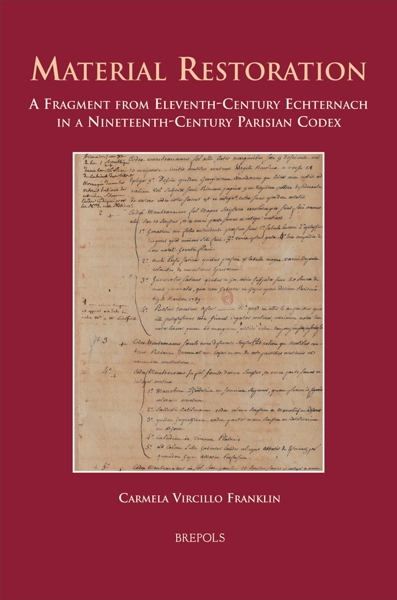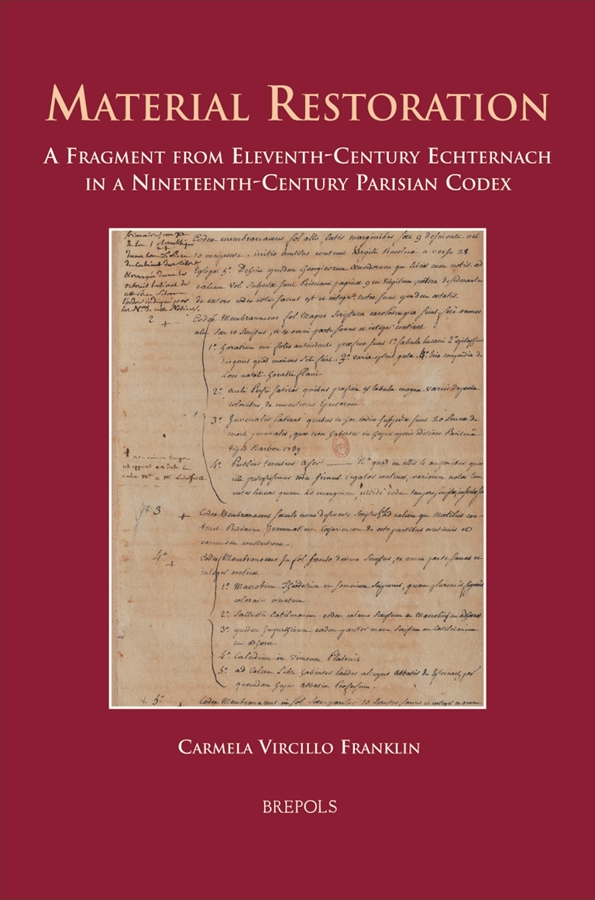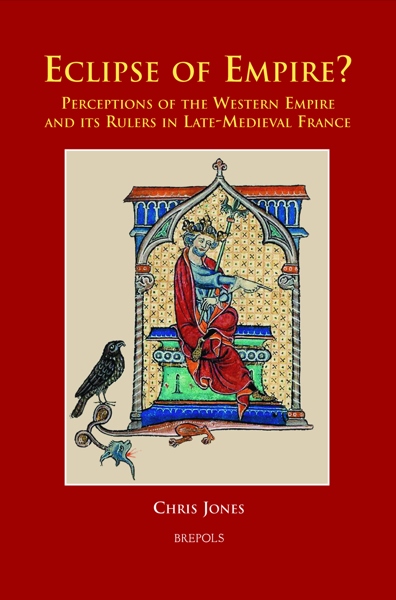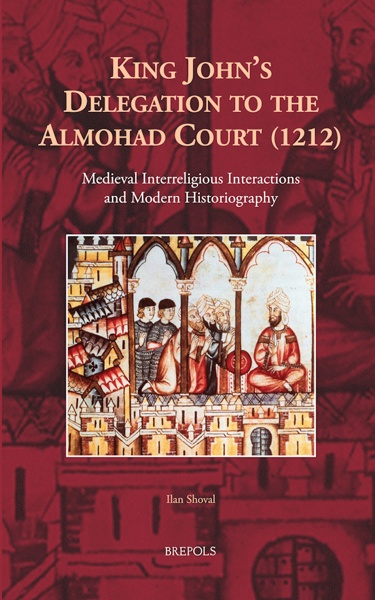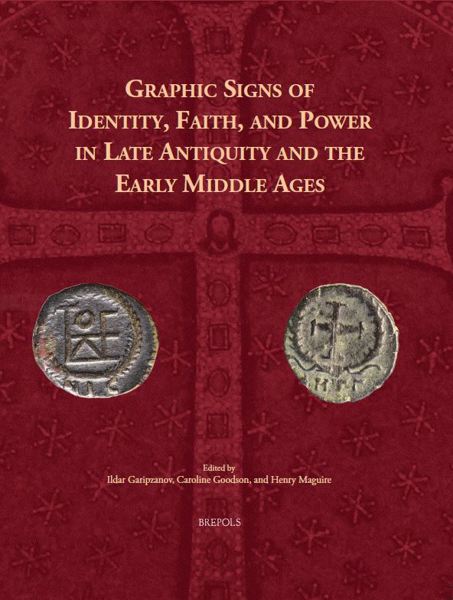
Material Restoration
A Fragment from Eleventh-Century Echternach in a Nineteenth-Century Parisian Codex
Carmela Vircillo Franklin
- Pages: 242 p.
- Size:156 x 234 mm
- Illustrations:18 b/w, 0 col., 1 tables b/w.
- Language(s):English, Latin
- Publication Year:2010
- € 55,00 EXCL. VAT RETAIL PRICE
- ISBN: 978-2-503-52909-7
- Hardback
- Available
- € 55,00 EXCL. VAT RETAIL PRICE
- ISBN: 978-2-503-56061-8
- E-book
- Available
Material Restoration is a riveting scholarly detective story that traces the history of an Echternach manuscript fragment.
"[Franklin's] work is a model case study that convincingly demonstrates the importance - and the potential payoff - of considering context and provenance alongside text and codex. Every manuscript, no matter how fragmentary, has a story to tell, and Franklin tells this one vividly and with imposing scholarship."
(Lisa Fagin Davis, in Speculum 86/3, July 2011, p. 756)
"Le mérite majeur de ce travail, outre son intérêt intrinsèque et ses aspects d'enquête policière, est d'avoir surmonté la fragmentation des savoirs, presque inévitable, mais préjudiciable à la compréhension intégrale d'un document."
(P.-M. Bogaert, dans Revue Bénédictine, 2011/1, p. 232)
"(...) ces quelques détails ne doivent aucunement faire oublier le grand mérite de cet ouvrage, rappelé dans la conclusion (...), et qui est de replacer, de manière très convaincante, trois textes (une charte et deux poèmes) dans un contexte matériel, historique et culturel sans lequel on ne saurait en percevoir pleinement le sens et la portée."
(François Ploton-Nicollet, dans: Bibliothèque de l'École des chartes, 170/1, 2012, p. 251-255)
CONTENTS
Preface
List of Figures
List of Abbreviations
Introduction
Part I: The Modern Age
Chapter 1. The Fragmentation of Modern Scholarship
Chapter 2. Dispersal and Restoration in the Nineteenth Century
Appendix: The Lists of the Manuscripts Taken from Luxembourg to Paris
Part II: The Beginnings (900–1000)
Chapter 3. The Charter
Chapter 4. The Poems and the Glosses: Edition and Translation
Edition of Musical Glosses by S. J. Barrett
Chapter 5. ‘Salue abba mitissime’: Two Kinds of Spiritual Food
Chapter 6. ‘O sacrata dies’: Poetry as lectio divina
Chapter 7. The Glosses
Conclusion. ‘Habent sua fata libelli’
Bibliography
Manuscript Index
General Index
